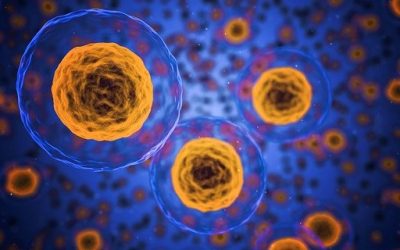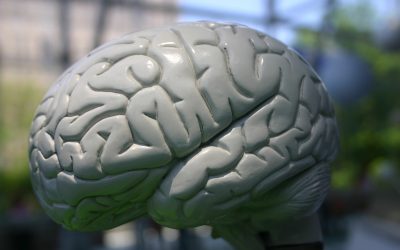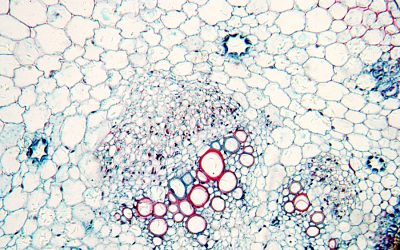Brain Health – Mental Health
Brain Health – Mental Health
Four Substantially Proven Strategies for Our Longer Health and Lifespan Exploring the Science Behind Supplementation for Longevity In the quest for longevity, four supplement strategies have emerged with substantial scientific backing: raising NAD+ levels,...
Why You Should Supplement NMN
Nicotinamide Mononucleotide (NMN), a naturally-occurring molecule, has garnered attention for its potential anti-aging properties. Let’s delve into the benefits of NMN for seniors: Cellular Energy Production: NMN is a precursor to nicotinamide adenine dinucleotide...
New Hope for Reversing Cognitive Decline; Senolytics
A definitive mouse study shows that several forms of stress increase multiplication rates of brain immune cells, leading to early senescence in those cell populations, and that leads to damage of neurons and cognitive decline, potentially including Parkinson's,...
High levels of glutamate in brain may kick-start schizophrenia Implications for early diagnosis and new treatment strategies
By Karin Eskenazi Columbia University Medical Center - New York, NY (April 18, 2013) — An excess of the brain neurotransmitter glutamate may cause a transition to psychosis in people who are at risk for schizophrenia, reports a study from investigators at Columbia...
Stem cells help repair traumatic brain injury by building a biobridge, USF researchers report
By Anne DeLotto Baier University of South Florida researchers have suggested a new view of how stem cells may help repair the brain following trauma. In a series of preclinical experiments, they report that transplanted cells appear to build a "biobridge" that links...
Obesity leads to brain inflammation, and low testosterone makes it worse
By Aaron Lohr The Endocrine Society - Low testosterone worsens the harmful effects of obesity in the nervous system, a new study in mice finds. The results will be presented Monday at The Endocrine Society's 95th Annual Meeting in San Francisco. "Low testosterone and...
Neurotransmitter levels and balance
Correcting neurotransmitter levels should rightly be the primary consideration because when this balance is accomplished, hormone levels often normalize on their own. Conversely, improving some hormonal disturbances will correct neurotransmitter production and balance. While the brain produces many chemicals, those with major impact include serotonin, dopamine, GABA, norepinephrine, epinephrine, acetylcholine and glutamate.
Neurotransmitters (NTs) are broadly classed as excitatory or inhibitory, and this is where the balance factor comes into play – excitatory NTs ramp up certain functions of the brain and body while inhibitory NTs regulate them down, keeping the body’s systems under control. Any deficiency or excess of a NT, or incorrect dynamic balance of NTs can lead to a veritable circus of mental and physical malfunctions.
Some causes of NT disruption
Medications: Many medications affect NT levels. Diet pills, stimulants, narcotics, virtually all recreational drugs and most psychotropics alter NT production.
Aging: As we age brain cells get worse at making NTs; research shows that about 60% of adults over 40 years of age have some neurotransmitter deficiencies – not a comforting statistic.
Heavy Metal Toxicity: Mercury, lead, cadmium, aluminum and arsenic are toxic metals that are evaluated in hair/tissue analysis and blood testing. All are found in our bodies, but elevated levels disrupt hormonal and NT function.
Inflammation: Inflammatory processes occurring anywhere in the body will upset the normal balance of NTs. For example, inflammation interferes with the conversion of tryptophan to 5-HTP, reducing production of serotonin.
Hormone imbalance: As we stated above, imbalance in hormone levels is interactive with NT levels and balance – one effects the other, and achieving balance of NTs requires attention to hormone levels as aging progresses.
Genetic limitations: Some people are born with defective or impaired chemical systems for production and regulation of NTs – they usually have developmental and behavioral problems at an early age. They usually have relatives with mental illness and experience progressive symptoms and disability with aging.
Neurotransmitter imbalance is popularly treated by using drugs to increase serotonin levels regardless of an individual’s NT levels or balance – they are rarely measured before doctors hand out happy pills; mostly the SSRIs (selective serotonin re-uptake inhibitors) such as Paxil, Prozac, Zoltoft.
All these drugs have well-known and nasty side effects because they interfere with critical chemical processes that effect other NTs production. They work well in only about 30% of cases, and generally only slightly better than placebo. A more permanent and lasting solution for the majority of the population is restoration of correct nutrition and correction of lifestyle to permit less stress and better sleep.
Keeping a Healthy Brain
Neurotoxins such as alcohol, caffeine, nicotine, MSG and sugar should be reduced or avoided. Vitamins B6, B12, Riboflavin and niacin are seen to be deficient in a high percentage of depressed people; restoring proper levels can make it melt away. Magnesium deficiency is widespread in the US, averaging about 250 mg/day, while 650mg/day is needed for minimal health; magnesium deficiency is linked to depression and causative in many cases.
Two thirds of the brain is fat, and the essential fatty acids alpha-linolenic acid (ALA) and linoleic acid (LA) and other short-chain omega-3 fats such as EPA and DHA are essential to brain and NT function. Using Fat blockers for diet purposes is a sure way to become deficient in these important brain nutrients as well as the fat-soluble vitamins A, E and D. Mountains of research are now showing that >vitamin D deficiencies are causative> for many of the degenerative diseases of aging, including depression and likely Alzheimer’s disease.
Most NTs are made from proteins or amino acids. The ability to digest and assimilate proteins decreases with age, primarily because of reduced production of Hydrochloric acid in the stomach and reduced pepsin production. Getting amino acids across the blood-brain barrier is a complex process, but starts with digesting enough protein – from 40 to 70 grams per day for a sedentary person, and up to 150 grams for an athlete.
Serotonin is made from tryptophan, an amino acid that is sparse in nature and hard to get into the brain because it competes with other amino acids for transport. It actually requires carbohydrates, and the production of insulin to move into the brain. That is why sugared anything is looked at as a mood enhancer, because the insulin increase effects transport of tryptophan into the brain, serotonin increases and we feel better.
The supplement 5-HTP is a direct precursor to serotonin and, taken before bedtime on an empty stomach, readily crosses the blood-brain barrier and raises serotonin levels directly, encouraging healthy sleep; 100 to 200 mg can make a big change is how soundly we sleep.
Serotonin is the primary NT involved in mood and appetite regulation, and needs carbohydrates for its production, explaining why extended zero-carb diets lead to yo-yo cravings, binging, bulimia, seasonal affective disorder, and for women, more severe bouts of PMS. It also explains why people with low serotonin levels, like those under excess stress, depression, and the elderly gravitate to sweets to get them out of the dumps. Low serotonin leads to insomnia and heightened experience of pain – the body experiences more pain and life hurts more. A diet with plenty of vegetables (both leaf and root types) will supply the adequate amounts of carbohydrates for healthy serotonin levels, without binging on confections and junk foods.
GABA is another NT that is available as a supplement. It is the primary inhibitory NT that down-regulates anxiety – if you are biased toward anxiety, you probably just don’t make enough to do the job of keeping yourself positive about the future or the past. I use it as a sleep aid at about 1000 mg, again taken on an empty stomach, to sleep soundly, and if I take a while to fall asleep, I don’t get upset about it. I am seldom anxious about anything since I started using it.
Much of this information was taken from an article series by Dr. Sharon Norling, M.D. who practices integrative medicine in Westlake Village, CA (818) 707-9355
Strategy: Eliminate heavy metals; get your levels tested and work with an integrative physician to reduce their levels.
Strategy: Knock down inflammation with anti-inflammatory foods (raw vegetables and fruit, nuts, oily fish, eliminate pro-inflammatory foods (processed foods, overcooked meats, sugared anything), take Cod Liver Oil.
Strategy: Eat whole, nature-made foods, preferably organic, in rich variety, with 2 times as much raw as cooked; eliminate simple sugars and starches and things that come in a box, bag or can – give up soft drinks.
Strategy: If you are unhappy, and life hurts a lot, find an integrative physician who can measure and normalize your neurotransmitters and hormones.
Strategy: Seek out a practitioner of hypnosis, NLP or EFT because these healing techniques can correct brain chemistry through non-chemical means rather cheaply and rapidly.





